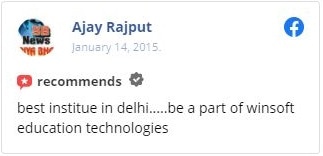Master Of Education (M.Ed) Admission Process from Top Universities: Eligibility Criteria, Scope, Fees, Duration, and Best Opportunities
A Master of Education (M.Ed.) is a graduate-level degree designed for educators seeking to deepen their expertise in various educational fields. This degree is particularly valuable for teachers who want to advance their careers, specialize in areas like curriculum and instruction, educational leadership, or special education, and take on leadership roles in educational institutions.
Key Features of the M.Ed. Program
Diverse Specializations:
- M.Ed programs typically offer a range of specializations, such as:
- Curriculum and Instruction: Focus on developing effective curricula and instructional strategies.
- Educational Leadership: Training for roles in school administration and leadership.
- Special Education: Preparing educators to support students with diverse learning needs.
- Adult Education: Emphasizing teaching strategies tailored for adult learners.
- Educational Technology: Exploring the integration of technology in modern teaching practices.
- M.Ed programs typically offer a range of specializations, such as:
Flexible Learning Options:
- Many institutions offer online, part-time, or hybrid M.Ed. programs, making it easier for educators to balance their studies with professional commitments.
- Many institutions offer online, part-time, or hybrid M.Ed. programs, making it easier for educators to balance their studies with professional commitments.
M.Ed. Career Opportunities
Graduates with an M.Ed. can pursue various career paths, including:
- Teacher: Advancing in their current roles with specialized knowledge.
- Educational Administrator: Taking on positions like principal or instructional coordinator.
- Curriculum Developer: Designing and implementing effective educational programs.
- Educational Consultant: Providing expert guidance to schools and educational organizations.
- Trainer or Coach: Supporting teachers in enhancing their instructional practices.
Advantages of Pursuing an M.Ed
- Career Advancement: An M.Ed. can lead to higher-level positions and expanded responsibilities in education.
- Increased Earning Potential: Graduates often enjoy higher salaries compared to those with only a bachelor’s degree.
- Professional Development: The M.Ed fosters continuous growth and learning in the field of education.
- Networking Opportunities: Students connect with fellow educators and industry professionals, building valuable relationships for future opportunities.
Eligibility Criteria for a Master of Education (M.Ed)
The eligibility criteria for a Master of Education (M.Ed.) program can vary by institution and country, but here are some common requirements:
General Eligibility Criteria for M.Ed.
Educational Qualifications:
- Bachelor’s Degree: Candidates typically need to have a bachelor’s degree in education (B.Ed.) or a related field (e.g., psychology, social sciences) from a recognized university.
- Minimum Percentage: Many institutions require a minimum percentage (usually around 50%–55%) in the undergraduate degree.
Teaching Experience:
- Some programs may prefer or require applicants to have teaching experience, especially for specializations related to educational leadership or curriculum development.
- Some programs may prefer or require applicants to have teaching experience, especially for specializations related to educational leadership or curriculum development.
Entrance Examinations:
- Certain institutions may require candidates to pass an entrance exam specific to education or graduate studies. Check for specific exams (e.g., GRE, university-specific tests) as needed.
- Certain institutions may require candidates to pass an entrance exam specific to education or graduate studies. Check for specific exams (e.g., GRE, university-specific tests) as needed.
English Proficiency:
- For non-native speakers, proof of English proficiency (e.g., TOEFL, IELTS) may be required to ensure the ability to engage with coursework effectively.
Personal Statement:
- Many programs require a personal statement outlining your motivation for pursuing an M.Ed., your educational philosophy, and career goals.
- Many programs require a personal statement outlining your motivation for pursuing an M.Ed., your educational philosophy, and career goals.
Letters of recommendation:
- Applicants may need to provide letters of recommendation from academic or professional references who can speak to their qualifications and potential for success in the program.
- Applicants may need to provide letters of recommendation from academic or professional references who can speak to their qualifications and potential for success in the program.
Interview:
- Some programs might conduct an interview as part of the selection process.
- Some programs might conduct an interview as part of the selection process.
Important Considerations
- Country-specific requirements: Always check the specific requirements for the country and institution you’re interested in, as they can differ significantly.
- Application Deadlines: Be aware of application timelines and ensure that all materials are submitted on time.
Admission Process for a Master of Education (M.Ed) for the 2025-2026
The admission process for a Master of Education (M.Ed.) program for the 2025-2026 academic year typically involves several steps. While specifics can vary by institution, here’s a general outline of what to expect:
Admission Process for M.Ed. (2025-2026)
Research Programs:
- Identify universities and colleges offering M.Ed programs. Review specializations, faculty, and accreditation status.
- Identify universities and colleges offering M.Ed programs. Review specializations, faculty, and accreditation status.
Check Eligibility:
- Ensure you meet the eligibility criteria (educational qualifications, minimum percentage, work experience, etc.) set by the institutions you’re interested in.
- Ensure you meet the eligibility criteria (educational qualifications, minimum percentage, work experience, etc.) set by the institutions you’re interested in.
Prepare Application Materials:
- Gather necessary documents, which may include:
- Academic transcripts from your undergraduate studies.
- Proof of English proficiency (if applicable).
- Letters of recommendation (usually 2-3).
- Personal statement or statement of purpose detailing your interest in the program and career goals.
- Resume or CV highlighting relevant experience.
- Gather necessary documents, which may include:
Complete Application Form:
- Fill out the application form for each institution, either online or in paper format, as required.
- Fill out the application form for each institution, either online or in paper format, as required.
Entrance Examination (if applicable):
- If required, register for any entrance exams specific to the M.Ed program (e.g., GRE, institution-specific tests) and ensure you meet the test deadlines.
- If required, register for any entrance exams specific to the M.Ed program (e.g., GRE, institution-specific tests) and ensure you meet the test deadlines.
Pay Application Fee:
- Submit any required application fees as specified by the institution.
- Submit any required application fees as specified by the institution.
Submit Application:
- Ensure all materials, including the application form and supporting documents, are submitted by the institution’s deadline.
- Ensure all materials, including the application form and supporting documents, are submitted by the institution’s deadline.
Interview (if applicable):
- Some programs may require an interview. Be prepared to discuss your background, motivations, and future goals in education.
- Some programs may require an interview. Be prepared to discuss your background, motivations, and future goals in education.
Admission Decision:
- After submitting your application, wait for the admissions committee to review applications and announce decisions. This process can take several weeks to months.
- After submitting your application, wait for the admissions committee to review applications and announce decisions. This process can take several weeks to months.
Enrollment:
- Paying a deposit or tuition fees.
- Registering for classes.
- Attending an orientation session for new students.
Curriculum for a Master of Education (M.Ed)
The curriculum for a Master of Education (M.Ed.) program typically includes a mix of core courses, specialized electives, practical experiences, and research components. Below is an overview of the common elements you might find in an M.Ed. curriculum:
Core Curriculum Components
Foundational Courses:
- Educational Psychology: Study of learning theories, motivation, and cognitive development.
- Research Methods in Education: Introduction to qualitative and quantitative research methods, data analysis, and research design.
- Assessment and Evaluation: Techniques for assessing student learning and evaluating educational programs.
Specialized Courses:
- Depending on your specialization, you may take courses such as:
- Curriculum Development: Principles and practices for designing effective curricula.
- Instructional Strategies: Effective teaching methods tailored to diverse learners.
- Educational Technology: Integration of technology in teaching and learning processes.
- Leadership in Education: Developing skills for effective school administration and leadership roles.
- Depending on your specialization, you may take courses such as:
Electives:
- M.Ed programs often allow students to choose electives based on their interests, such as:
- Special Education
- Adult Education
- Early Childhood Education
- ESL (English as a Second Language) Instruction
- Global Education
- M.Ed programs often allow students to choose electives based on their interests, such as:
Practical Components
- Internship or Practicum: Many programs include a hands-on internship or practicum, where students gain real-world experience in educational settings. This can involve:
- Observing experienced educators
- Developing and implementing lesson plans
- Collaborating with educational professionals
Online Learning Components
For online or hybrid M.Ed programs, the curriculum may also include:
- Asynchronous Learning Modules: Self-paced coursework that can be completed at your convenience.
- Discussion Forums: Online platforms for engaging with peers and instructors.
- Virtual Classrooms: Live sessions where students can interact and participate in discussions.
- Psychology of Learning and Development
- Historical, Political and Economic foundations of Education
- Education Studies
- Introduction to Educational Research
- Internship:Teacher Education Institute (Phase-I, Three Weeks) – Practical
- Communication and Expository Writing – Practical
- Self Development – Practical
- OPEN Elective: Understanding Sociology
- Foundation Elective: Psychology of Everyday Living
- Philosophical Foundations of Education
- Sociological foundations of Education
- Curriculum Studies
Pre-Service & In-service Teacher Education - Internship:Teacher Education Institute (Phase-II, Three Weeks) – Practical
- Academic Writing – Practical
- Institutional Planning and Management (Elementary / Secondary Level)
- Issues, curriculum and Assessment (Elementary / Secondary Level)
- Advance Educational Research
- Perspectives Research and Issues in Teacher Education
- Internship in Specialized Area (In School; 28 Days) – Practical
- Advanced Curriculum Theory
- Pedagogy of Science Education
- Pedagogy of Mathematics
- Pedagogy of Language Education
- Pedagogy of Social Science
- Approaches to Assessment
- Educational Policy, Economics Planning
- Educational Management, Administration Leadership*
- Information, Communication & Educational Technology*
- Guidance and Counselling*
- Inclusive Education*
- Dissertation – Practical
Scope of a Master of Education (M.Ed)
The scope of a Master of Education (M.Ed.) is extensive, providing numerous advantages and opportunities for professionals in the education sector. Here are some key aspects of the M.Ed. scope and future advantages:
1. Career Advancement
- Higher-Level Positions: An M.Ed qualifies graduates for advanced roles in education, such as school administrators, instructional coordinators, and curriculum developers.
- Specialized Roles: Graduates can specialize in areas like special education, educational technology, or counseling, enhancing their marketability.
2. Increased Earning Potential
- Holding an M.Ed often leads to higher salaries compared to those with only a bachelor’s degree or a basic teaching credential. Many school districts offer salary increases for advanced degrees.
3. Leadership Opportunities
- M.Ed graduates are well-equipped to take on leadership roles within schools and educational organizations, influencing policies and practices that improve educational outcomes.
4. Expanded Skill Set
- The program enhances critical skills such as research methodologies, assessment techniques, instructional strategies, and educational leadership, making graduates more effective educators and leaders.
5. Lifelong Learning and Professional Development
- Graduates are encouraged to engage in lifelong learning, attending workshops, conferences, and additional training to stay current with educational trends and practices.
6. Impact on Education Policy
- M.Ed graduates can influence educational policy and practice at local, state, and national levels, advocating for changes that promote equity and access in education.
7. Diverse Career Paths
- The versatility of an M.Ed allows graduates to explore various paths, including:
- Teaching: Advanced teaching positions or specialized instructional roles.
- Educational Consulting: Providing expertise to schools and organizations.
- Policy Analyst: Working with government agencies or NGOs to shape educational policies.
What's Next after M.Ed Admissions ?
After M.Ed, a candidate can apply for work at Senior School or can Apply for Principal’s position for promotion and salary advancement. or He/She can work at College as Junior Professor or Assistant Professor or Librarian.
Student who want to want to get Higher studies for better opportunities can opt for PhD Admission form one of the top Universities here.






























